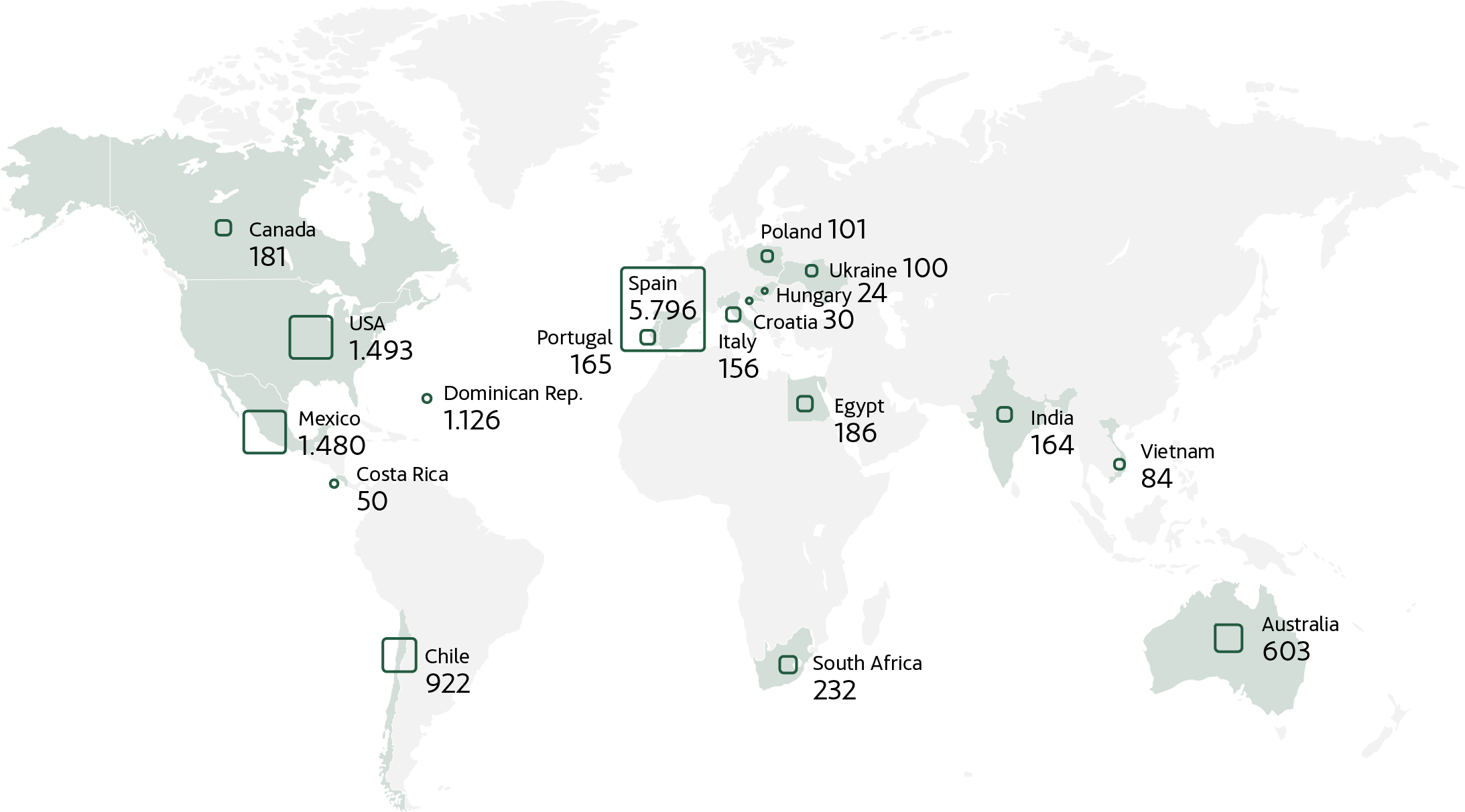ACCIONA's projects seek a positive impact on the planet through business models based on decarbonization, water and ecosystem preservation and the circular use of resources.
ACCIONA carries out multiple actions that validate its performance in this area. For instance:
- Generating renewable energy from inexhaustible sources such as the sun or the wind and from agricultural and/or forest residues.
- Producing drinking water from seawater in water-stressed regions, using the best available techniques from the point of view of energy expenditure. Likewise, purifying wastewater and preserving and improving natural capital, which facilitates its reuse.
- Developing infrastructures that benefit the transport efficiency, renewable energy generation and its distribution, waste management and the sustainability of cities.
- Providing shared electric mobility services, infrastructure maintenance, energy management and segregated waste collection, as well as taking care of its transport, classification, and recovery.
 2022 Report
2022 Report

